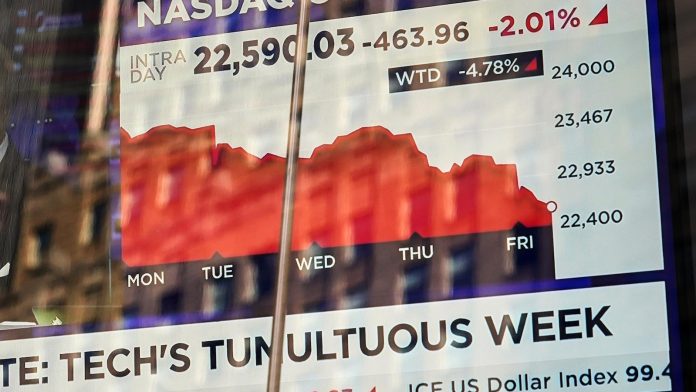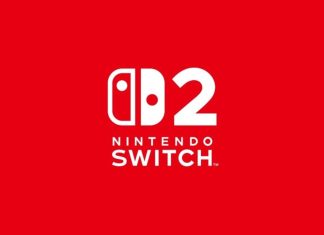BANGKOK — Asian shares were mostly lower on Tuesday as the recent rebound fueled by buying of technology shares lost steam.
Markets showed little reaction to the latest step toward ending the U.S. shutdown, after the Senate passed legislation to reopen the government.
U.S. futures were little changed and oil prices slipped.
Shares have been bouncing on criticism that tech share prices have shot too high due to the mania for artificial intelligence, which some have likened to the 2000 dot-com bubble that ultimately burst.
In Tokyo, the Nikkei 225 lost 0.5% to 50,675.92.
The U.S. dollar climbed to 154.15 against the Japanese yen, from 154.14 yen, near its highest since February. Expectations that the government will push back its schedule for trimming Japan’s huge national debt and boost spending have helped to weaken the yen.
The euro inched up to $1.1563 from $1.1557.
Chinese shares also declined. Hong Kong’s benchmark Hang Seng index fell 0.2% to 26,595.97 and the Shanghai Composite index shed 0.4% to 4,002.06.
South Korea’s Kospi, recovering from last week’s fell below the 4,000 level, initially rose more than 1% but finished up 0.4% at 4,087.56.
Australia’s S&P/ASX 200 dropped 0.2% to 8,818.80.
Taiwan’s Taiex fell 0.3%, while the Sensex in India shed 0.4%.
On Monday, Big Tech and other superstars of the U.S. stock market got back to rallying, and Wall Street recovered most of its loss from last week.
The S&P 500 climbed 1.5% to 6,832.43, while the Dow Jones Industrial Average rose 0.8% to 47,368.63.
The Nasdaq composite rallied 2.3% to 23,527.17.
Nvidia was by far the strongest force lifting the market and leaped 5.8%. It was a powerful rebound after Nvidia and other winners of the frenzy around artificial-intelligence technology led last week’s drop. Critics say their stock prices shot too high and too fast in the AI mania, drawing comparisons to the 2000 dot-com bubble that ultimately burst.
Drops for several health insurers helped keep the market’s gains in check. They fell as uncertainty remains about whether Washington will extend expiring health care tax credits, a sticking point on Capitol Hill that’s created the longest-ever shutdown for the U.S. government.
Elsewhere on Wall Street, Berkshire Hathaway slipped 0.4% as its CEO, famed investor Warren Buffett, warned shareholders that many other companies will fare better in the decades ahead because of Berkshire Hathaway’s massive size. Buffett, 95, is set to step down in January.
Tyson Foods climbed 2.3% after the seller of chicken, beef and pork reported a stronger profit for the latest quarter than analysts expected.
Roughly four out of every five companies in the S&P 500 that have so far reported their results for the summer have also topped analysts’ profit expectations, according to FactSet. Companies usually beat analysts’ estimates each quarter, but the pressure was high this time around because they needed to justify the big moves upward for their stock prices since April.
Delivering bigger profits is one of the easier ways companies can quiet criticism that their stock prices have become too expensive.
In other dealings early Tuesday, U.S. benchmark crude oil lost 25 cents to $59.88 per barrel. Brent crude, the international standard, shed 25 cents to $63.81 per barrel.
___
AP Business Writers Stan Choe and Matt Ott contributed.








